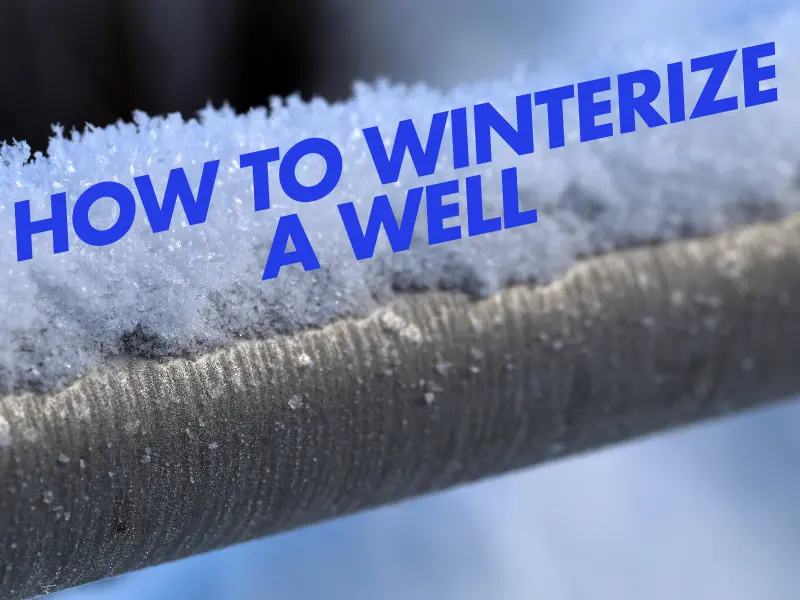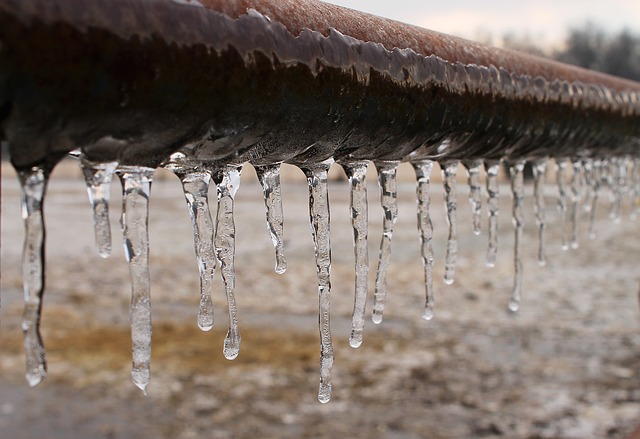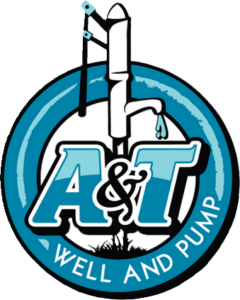Can my well water freeze in North Carolina? The answer is unfortunately yes. You can…
As the cold weather settles in, you’re probably busy getting your home ready for winter by doing things like adding extra weather strips and caulking gaps around windows, cleaning the fireplace, and storing or covering your outdoor furniture. But what about your well?
Do you need to prepare your well for the winter to prevent freezing and avoid burst pipes or an interruption in water flow? The pros at A&T Well and Pump are here to answer these questions and more and walk you through how to winterize a well to provide the best protection against the colder months.

Can A Well Freeze?
Yes, it can. This is why it’s important to know how to winterize a well. Whether or not well water freezes depends on two things - how deep your well is and the frost line (the lowest depth below the surface where the ground freezes). In Raleigh, the frost line is only about six inches deep and wells are significantly lower than that! The water in your well, as well as the water in the underground pipes, should be far below where the air temperatures dip below 32 degrees.
If your well does freeze, it can cause significant damage. This is because when water freezes, it expands, which can cause a pipe to burst. This can damage your well pump and other parts, leading to expensive repairs, not to mention the damage caused to other parts of your property.
What Does it Mean to Winterize a Well?
If you are going to winterize a well, it generally means you are preparing for your home to be vacant during the cold weather months and need to shut it down to prevent any damage, such as pipe freezes and bursts.
If you have a vacation home, hunting lodge, or other structure that relies on a well that you won't be using, you will want to winterize it as well.
This only requires a few steps:
- Turn the water supply off to the house and make sure the switch that powers the well pump is off.
- Drain all the water out of the water lines - just turn on the taps and flush the toilet until the water no longer runs.
- Unplug or disconnect any wiring that powers your pump to prevent someone from trying to use it once your home is shut down for the winter.
This is a simple task that can save you a lot of trouble when you reopen your home in the spring.
Can An Underground Well Pump Freeze?
If you have an underground well pump, it’s highly unlikely it will freeze because it is located below the frost line. But, other parts of your well system aren’t so lucky. They are vulnerable to freezing as the temperatures get colder.
These include:
- Above-ground pump
If the temperature falls below 40 degrees Fahrenheit, it can be prone to freeze. You can prevent this from happening by keeping it in an insulated area that stays about 40 degrees.
- Jet pumps
When jet pumps are not in a heated area they can freeze. They are generally found at our above-ground level. Jet pumps are going to be mounted above the well, in your home, or in a "well house." Your pump should be above 40 degrees, so if it's located in a place where the temperature can dip below that, you'll want to make sure it's inside some type of enclosure to insulate it.
- Supply pipes
These are the pipes that run from the well to your home. They can freeze if they are close to the ground surface.
- Water tanks
Since water tanks can easily freeze, they should be kept in an insulated enclosure.
How To Keep Outside Well Pumps From Freezing
Since outside well pumps are susceptible to freezing, there are certain steps you can take to prevent this from happening as you look at how to winterize a well.
Provide Insulation
An easy way to keep outside well pumps from freezing is to wrap them in bubble wrap. You can also use insulation or heating cables. Many people use insulation because it prevents water from freezing and expanding which can lead to pipe bursts.
Seal Leaks
Use caulking to seal any cold air leaks when you’re looking at how to winterize a well and prevent well pumps from freezing.
Bury Discharge Pipe
Burying the discharge pipe deeper in the ground or covering it with hay or a tarp can prevent outside well pumps from freezing.
Keep Water Flowing
Run a small stream of water through the sump pit to prevent freezing water.
Turn off Outside Faucets
Turn off the outdoor pipes at the shutoff valves and open the bleed cap at the faucet. This will help to drain any remaining water in the pump.
Add a Blanket Heater
A blanket heater is a low-maintenance and efficient way to prevent well pumps from freezing.

How To Keep An Above-Ground Water Line From Freezing
As you look at how to winterize a well, it’s important to know how to keep an above-ground water line from freezing. Water freezing in your pipes is the main concern during winter, as the ice expands and can cause the pipe to burst. This can lead to an expensive repair to both your pipes and anything that got damaged in the flood! There are several ways you can prevent this from happening.
Provide Insulation
While underground pipes are too deep to freeze, generally, any water pipes that are above ground should be insulated, such as areas where the pipes come up from the ground and into your home. Protect them with foam sleeves that can be purchased from the hardware store, or you can wrap them in bubble wrap and duct tape, or slice open a pool noodle to fit around the pipes.
If the temperature dips below 20 degrees (which happens on an average of eight times a year in Raleigh), consider keeping your faucets open and running overnight - just a slow trickle is enough to keep water moving and prevent it from freezing. If you do have a pipe freeze, you'll want to quickly thaw out a frozen well water pipe.
Use Heat Tape
For an added layer of protection against freezing lines, use a self-regulating heating cable on the water line.
Look for Leaks
Inspect pipes regularly for any cracks or leaks that could allow cold air in, leading to the groundwater line freezing.
Keep Cabinets Open
If you have exposed plumbing, leave cabinet doors open so warm air can circulate.
Drain Outdoor Faucets
Before the freezing temperatures settle in, turn off the water supply to outdoor faucets. You should also open them slightly to drain any remaining water.
What Goes Into Winterizing a Well Pump and Pressure Tank?
When you’re looking at how to winterize a well, you need to take a look at how to winterize a well pump and pressure tank. Follow these easy steps:
Turn off the Power
Disconnect the pump from the power source.
Drain the System
Drain all remaining water from the pipes and pressure tank by opening all open faucets throughout the home.
Drain the Pressure Tank
Completely drain the pressure tank by accessing the pressure tank drain valve.
Insulate Exposed Pipes and the Pressure Tank
Use foam insulation to prevent any above-ground pipes from freezing. Cover the pressure tank with an insulation blanket or foam wrap.
Check Well Pit
Ensure that the well pit is properly sealed and covered to prevent moisture from entering.
You may also want to consider adding a small amount of non-toxic antifreeze directly to the pump to protect the inside parts from freezing.
FAQs About How to Winterize a Well
What temperature does a well freeze?
The water inside a well pump and any pipes can freeze when the temperature is around or below 32 degrees Fahrenheit.
Should I turn off the well pump if the pipes are frozen?
If the water is not flowing, it should be turned off and kept next to a heat source. It will most likely need to be repaired or replaced if it does freeze.
Can a well run out of water in the winter?
If the water table drops below the water level of your well pump, the well can temporarily run out of water until the aquifer recharges with rainfall or snowmelt.
How do you know if your well line is frozen?
Red flags include bulging pipes or ones that are covered with frost and ice. If you notice these things, you can thaw out the pipe by using a heating pad or hair dryer. Once the line is warmed, proper water flow should resume.
Do You Need Help With Your Well? Call Our Well Pump Specialists
Even after learning how to winterize a well, you may still experience a pipe freeze or burst or other problems with your well this winter.
If this happens, the team at A&T Well and Pump is here to help! We offer 24/7 emergency well repairs as well as well pump maintenance to make sure all of your equipment is in good working order.
Call us at (919) 980-0981 for service or fill out the form below with any questions or to schedule a consultation.

